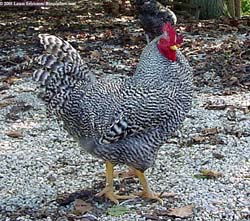Asian countries are on track to fight bird flu
Some Asian nations are on the right track in preparing to fight bird flu and a possible flu pandemic, but major gaps are still present in their plans, an expert said Wednesday. "The best plans in Asia are comparable, if not better, to some of the best plans in Europe ," said Dr. Richard Coker of the London School of Hygiene and Tropical Medicine.

Coker was speaking at a medical conference in Singapore as he released an analysis of the preparedness plans of nine countries in the Asia-Pacific region. Hong Kong , Australia and New Zealand have "comprehensive" national response plans to deal with an imminent outbreak of pandemic flu, the study said.
Less prepared for a pandemic are China , Thailand and Vietnam , where authorities are stockpiling antivirals but there is a lack of plans to implement rapid containment measures such as the maintenance of sanitation services, the study said. Coker said his team could not access any plans from the other three countries, Cambodia , Laos and Indonesia .
The importance of flu readiness plans comes amid heightened fears of a human pandemic, as the deadly H5N1 virus continues to threaten countries worldwide. The report also added that with over 80 percent of human deaths from avian influenza occurring in Southeast Asia , the region could be "the epicenter of the next human influenza pandemic."
"It's recognized that a pandemic may originate in Asia," Coker said, adding that in response, some Asian countries conduct stringent checks at their borders, and are better able to detect when the virus has been contracted by humans. But on the whole, Asia is "doing extremely well in some aspects," Coker said.
Coker stressed the need for "solidarity between countries" to deal with the onset of a pandemic and the need for countries to share information. "Many countries, while anticipating a global pandemic, focus their planning on domestic needs alone, but this will not be a national or regional pandemic. It can be a global pandemic," he said. "The knock-on effect will affect the other countries."
"The challenge is: how do countries learn from each other? To do that, countries need to be transparent and open," he said. Health experts say it remains difficult for humans to catch H5N1, but they fear the virus could mutate into a form more easily transmitted among people and set off a flu pandemic that could kill millions worldwide, reports the AP.
N.U.
Subscribe to Pravda.Ru Telegram channel, Facebook, RSS!





